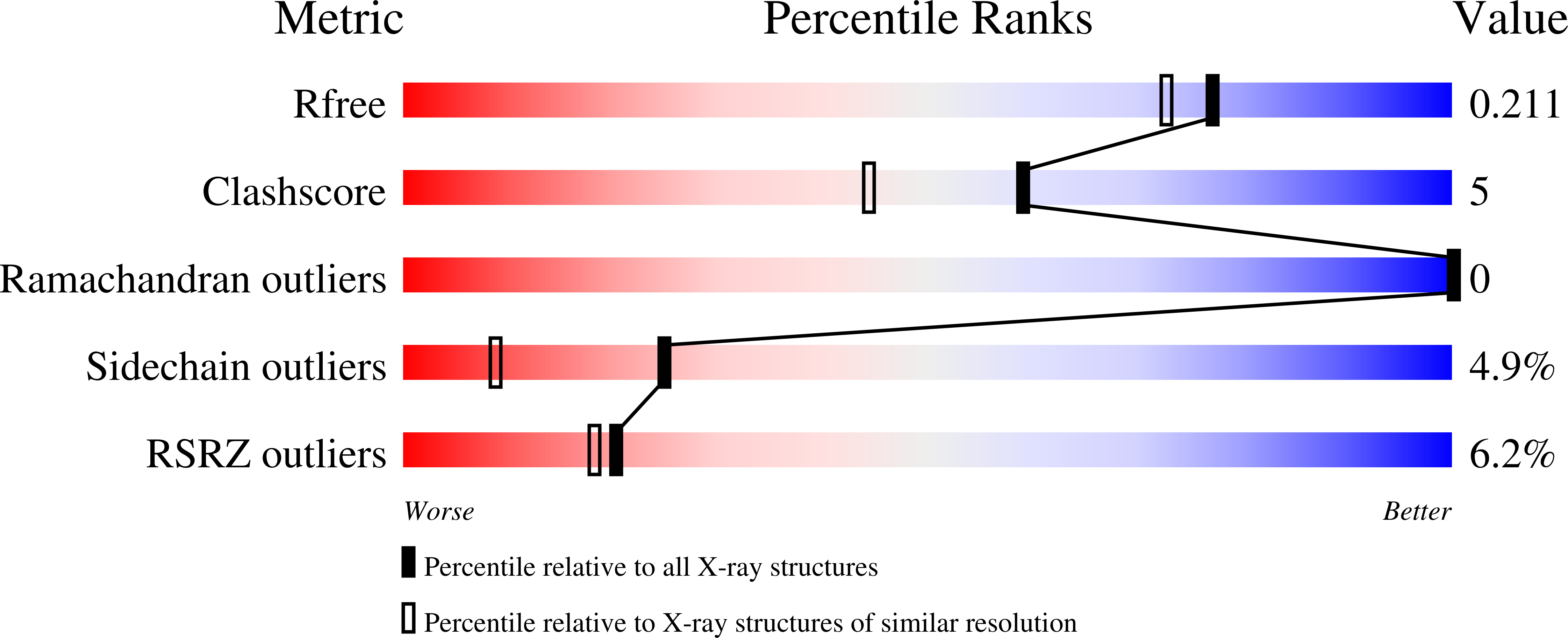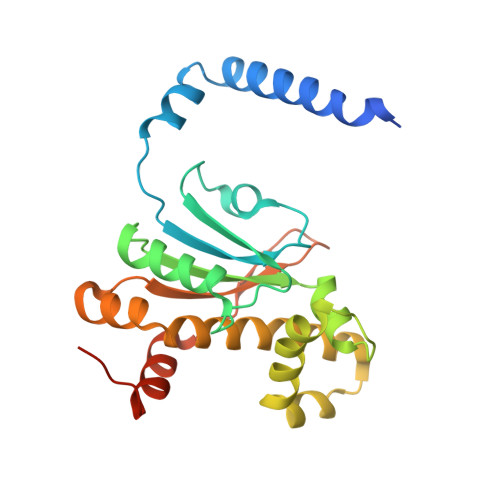Crystal structures of two tetrameric beta-carbonic anhydrases from the filamentous ascomycete Sordaria macrospora.
Lehneck, R., Neumann, P., Vullo, D., Elleuche, S., Supuran, C.T., Ficner, R., Poggeler, S.(2014) FEBS J 281: 1759-1772
- PubMed: 24506675
- DOI: https://doi.org/10.1111/febs.12738
- Primary Citation of Related Structures:
4O1J, 4O1K - PubMed Abstract:
Carbonic anhydrases (CAs) are metalloenzymes catalyzing the reversible hydration of carbon dioxide to bicarbonate (hydrogen carbonate) and protons. CAs have been identified in archaea, bacteria and eukaryotes and can be classified into five groups (α, β, γ, δ, ζ) that are unrelated in sequence and structure. The fungal β-class has only recently attracted attention. In the present study, we investigated the structure and function of the plant-like β-CA proteins CAS1 and CAS2 from the filamentous ascomycete Sordaria macrospora. We demonstrated that both proteins can substitute for the Saccharomyces cerevisiae β-CA Nce103 and exhibit an in vitro CO2 hydration activity (kcat /Km of CAS1: 1.30 × 10(6) m(-1) ·s(-1) ; CAS2: 1.21 × 10(6 ) m(-1) ·s(-1) ). To further investigate the structural properties of CAS1 and CAS2, we determined their crystal structures to a resolution of 2.7 Å and 1.8 Å, respectively. The oligomeric state of both proteins is tetrameric. With the exception of the active site composition, no further major differences have been found. In both enzymes, the Zn(2) (+) -ion is tetrahedrally coordinated; in CAS1 by Cys45, His101 and Cys104 and a water molecule and in CAS2 by the side chains of four residues (Cys56, His112, Cys115 and Asp58). Both CAs are only weakly inhibited by anions, making them good candidates for industrial applications. CAS1 and CAS2 bind by x-ray crystallography (View interaction) Structural data have been deposited in the Protein Data Bank database under accession numbers 4O1J for CAS1 and 4O1K for CAS2.
Organizational Affiliation:
Institute of Microbiology and Genetics, Department of Genetics of Eukaryotic Microorganisms, Georg-August-University Göttingen, Germany.















